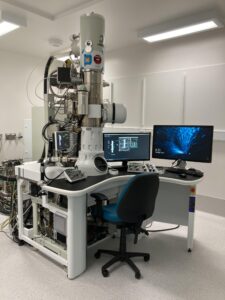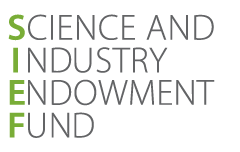April 2022 Newsletter

Hello SIEF supporters,
While SIEF has been quiet on the newsletter front, it has been active in its continued support for Australian science and industry. The original purpose of SIEF to train students to undertake research continues in the present day and I’m pleased to provide updates on activities funded by the NSW Endowment and the CSIRO Gift supporting students and ECRs in this latest edition.
Since 2009 SIEF has supported research infrastructure projects fostering collaboration and research capability for the benefit of Australia. The Round 2 Medium Equipment Program and the Special Research Program have provided Australia’s research community with new facilities and equipment for use across the national innovation system, two examples are highlighted in this newsletter.
Melissa Straffon
SIEF Manager
(03) 9545 7952 or 0408 134 581
NSW Generation STEM
Generation STEM is gathering momentum and is delivering two new programs this year to complement the expanding STEM Community Partnerships Program. The Generation STEM Links program provides high-quality internships to help NSW STEM tertiary students gain relevant workplace skills and transition into STEM jobs after graduation. In doing so it provides industry partners with the opportunity to help increase awareness of local STEM career pathways and raise the calibre of upcoming talent for their industry. Also commenced in 2022 is the Deadly in Generation STEM program that aims to increase participation of NSW Aboriginal and/or Torres Strait Islander secondary students in STEM, through Culture and on Country. Generation STEM works closely with local community and partners with organisations that support Generation STEM to ground the program in cultural knowledges. All Generation STEM programs prioritise NSW regions with growing communities and increasing STEM industries.
Early career researchers off to Lindau
After a two-year hiatus due to COVID, the 71st Lindau Nobel Laureates meeting dedicated to chemistry will take place in late June 2022 as a face-to-face event. Eleven early career researchers from Australia, including five who attended the virtual meeting in 2021, are attending and will also undertake a SIEF funded study tour to German research and development facilities. Other early career researchers selected in 2020 and 2021 will be invited to attend future Lindau Meetings. The Lindau program is administered by the Australian Academy of Science. Nominations for the 2023 meeting will open later this year; details about the nomination process can be found on the AAS website. Postgraduate students and postdoctoral fellows are eligible for nomination by their research organisation.
Medium Equipment Program Round 2 wraps up
The Medium Equipment Program was established to address a gap in funding for equipment worth up to $4m. The program aimed to enhance capability and capacity, and encourage collaboration nationally, internationally and with industry. To date, 13 activities have been funded that are providing substantial benefits to Australian science and industry. For example, the program has assisted in building capacity and expertise in Australia for the development of new pharmaceuticals and address an unmet demand for local production and testing of new products to Australian standards. On completion of construction later this year, the new CSIRO Biologics Facility in Melbourne will manufacture investigational materials for clinical studies which is an important step in reducing Australia’s reliance on overseas manufacturing and products and will provide Australia with global clinical trial opportunities and a faster path towards a broader range of markets. More information about the MEP can be found on the SIEF website.
Australian biosecurity capability is enhanced

The SIEF funded TEM operating at the Australian Centre for Disease Preparedness.
Australia and the Asia/Pacific’s biosecurity capability has been substantially enhanced with the funding of a transmission electron microscope at the Australian Centre for Disease Preparedness (ACDP) in Geelong. The new TEM is housed in a lower physical containment facility providing greater accessibility to users and is available for use by universities, state animal health laboratories, international collaborators and Microscopy Australia partners. The TEM provides additional capability of cryo-TEM imaging and greater depth of 3D imaging that builds on the existing diagnostic TEM capability and will contribute to the understanding of virus/host interaction and viral mechanisms for disease that may contribute to treatment and prevention of serious viral diseases such as Rabies.
SIEF Reviews
In order to review its effectiveness and impact, SIEF is continually undertaking review of its programs and operations.
Two reviews have been conducted in the last 12 months; one on the impact of the Promotion of Science John Stocker postdoctoral fellowships and postgraduate scholarships programs. The report concluded that the program contributed to the Australian innovation system by developing well rounded and connected researchers due to a strong learning and development program and preference for collaborative projects. The learnings from the postdoctoral program led to the establishment of the STEM+Business Fellowships program which is contributing to building deep connections between small to medium enterprises (SME’s) and research organisations.
Swinburne University was engaged to conduct an historic review and analysis of the breadth and quality of research activities supported by the CSIRO Gift. Focussing on the Research Projects program, the report concluded that SIEF made sensible choices in the selection of activities to support and that the quality of research activities was high with ambitious goals. The executive summary is available on the SIEF website.
